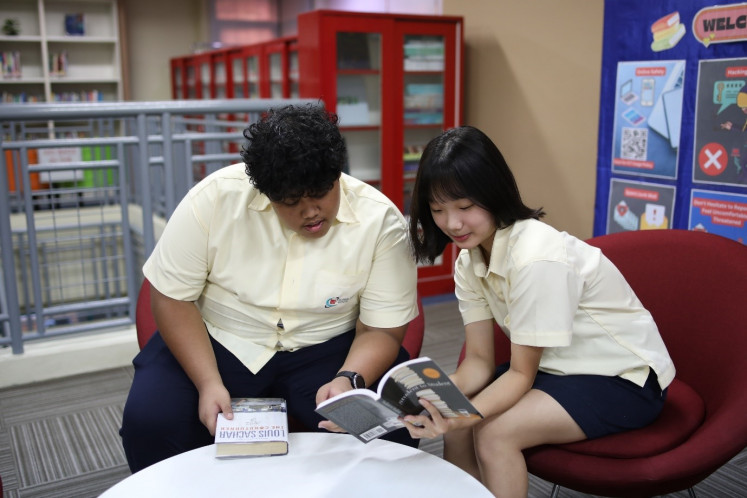Popular Reads
Top Results
Can't find what you're looking for?
View all search resultsPopular Reads
Top Results
Can't find what you're looking for?
View all search resultsUNESCO states key to better education is happiness
Change text size
Gift Premium Articles
to Anyone
I
n the past few years, schools have transformed from being just a place of learning, to a safe place that allows each student to unlock their potential and thrive, beyond letters and numbers on their report cards.
With the shift in the role educational institutions play in the growth of students, schools needed to change in order to better meet the demands of an ever-changing and uncertain world. The Happy Schools Project was launched by UNESCO Bangkok, in June 2014, in order to find out what makes a happy school.
The project launched the “Happy Schools Framework” to challenge schools to look beyond the traditional components of learning and to consider the connection between happy students and the positive impacts that being happy can have on student learning.
“As such, promoting learner happiness and well-being in schools does not imply that learning be made easier or require less effort, but rather, that such approaches could help fuel a genuine love of learning in and of itself,” it was stated in the executive summary.
The change in the approach is also proven to be effective by the Wellbeing Research Centre at the University of Oxford. It stated that happier children are ultimately better learners. Therefore, educational institutions have to pay attention to what students are learning, how they are learning, the facilitation of skill-building, the relationships and the sense of belonging to the community to give each student meaning and purpose on campus.
In order for students to find the meaning and purpose they crave, they need to be able to see the relevance and importance of what they are actually learning. Teachers can activate and encourage student agency by directing student attention toward real world challenges and facilitating student-generated solutions to these challenges.
However, it does not come down to textbooks and learning materials alone. In order for the stage to be set for flourishing to happen, the learning environment needs to be carefully crafted in order to encourage students to take risks and to understand that mistakes are opportunities for growth.
Educators need to ensure that they can provide a space that is safe, both physically and psychologically, for students to unlock their full potential at their own pace. At the same time, they must cultivate an environment that reinforces collaboration as well. Educators need to also strike a balance between upholding high academic expectations and facilitating student wellbeing.
(Courtesy by Global Jaya School)Students should also be made to feel safe when they hone their respective skills. In order to establish this, they need to first and foremost understand and value who they are, and that will lead them to identify their strengths and weaknesses. Educators should encourage them to set personal goals and develop the resilience necessary for when those goals seem unattainable. These “soft skills” should be explicitly taught to students.
Lastly, students need schools to provide them with the strategies that they need in order to actively develop these social emotional skills. This will help them cultivate relationships and feel a sense of connection and belonging to their school community, whether it is student to student or teacher to student.
“School climate is important for both pupils and staff, and impacts on many other drivers of wellbeing. It is particularly important for the school environment to feel safe and that the teachers respect and have a good relationship with pupils,” according to the same report.
An inclusive school climate, built on the foundation of compassion and open mindedness, invites all of its members to belong and ensures that diversity is embraced by all as an asset. The challenge to actively construct a climate that supports the flourishing of all students will ultimately fall on all educators and school leaders.
Learning is more than the acquisition of knowledge gleaned from shimmering screens or from the pages of a textbook. Learning is about thriving; being your best self, being connected and being impactful with the knowledge and skills that have been acquired.












